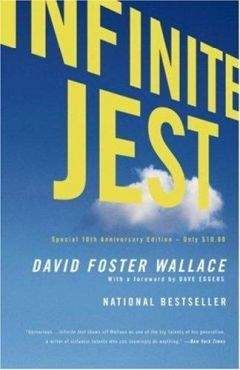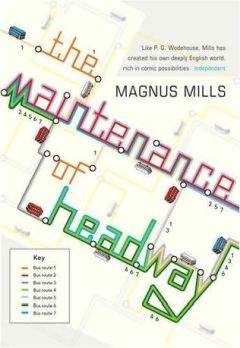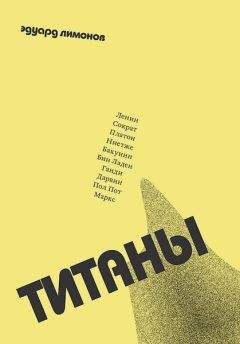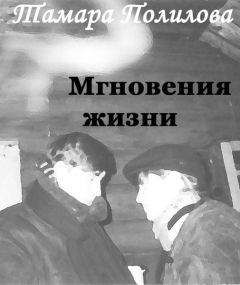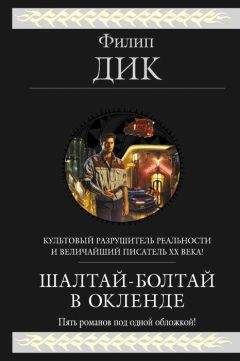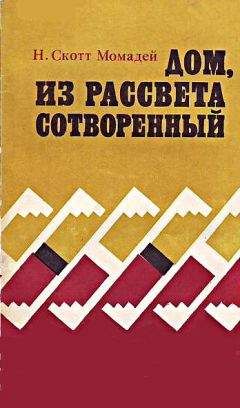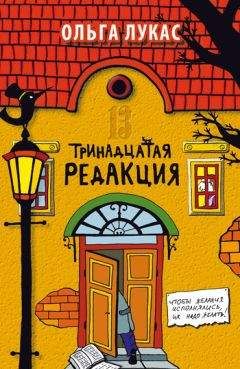Lars Iyer - Spurious
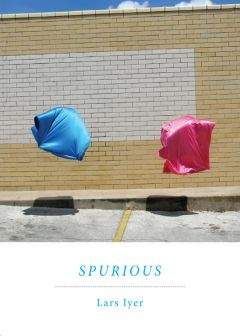
Скачивание начинается... Если скачивание не началось автоматически, пожалуйста нажмите на эту ссылку.
Жалоба
Напишите нам, и мы в срочном порядке примем меры.
Описание книги "Spurious"
Описание и краткое содержание "Spurious" читать бесплатно онлайн.
In a raucous debut that summons up Britain's fabled Goon Squad comedies, writer and philosopher Lars Iyer tells the story of someone very like himself with a "slightly more successful" friend and their journeys in search of more palatable literary conferences and better gin. One reason for their journeys: the narrator's home is slowly being taken over by a fungus that no one seems to know what to do about.
Before it completely swallows his house, the narrator feels compelled to solve some major philosophical questions (such as "Why?") and the meaning of his urge to write, as well as the source of the fungus… before it is too late. Or, he has to move.
But how are we going to get the money to Béla Tarr? Should we go to Hungary ourselves? My God, says W., what would he make of us? Two buffoons on the central plain! What would he think? Isn’t life hard enough for him as it is?
He uses non-professional actors, says W. of Béla Tarr. We talk of the great speech in Damnation about coal scuttles and suicide. It’s the best scene I’ve ever seen in a film, I tell him. He agrees. And the bit in the mud with the dog, with Karrer on all fours barking at the dog. Nothing better. Because that’s where we’ll end up — in the mud, covered in mud, barking! At each other, if no one else! Barking — in the mud!
W. says he was so alone over Christmas he forgot how to talk. — ‘I’m not like you’, he says, ‘I don’t need people’.
He’s written about Spinoza, says W. What have I written about? He sends me his lecture notes. He sends me a paper by someone cleverer than us. He sends me his introduction to a special edition of a journal. That’s what he’s been doing. He’s been busy. Not like me. — ‘I’ll tell you what your problem is’, says W., ‘you’re lazy! Lazy!’
Then W. tests me on Spinoza: What is a mode? What’s a substance? What’s an attribute? I tell him the Ethics is too hard. Get the Routledge Guidebook to Spinoza’s Ethics, W. tells me. — ‘But that’ll be too hard for you, won’t it? Get the Idiot’s Guide to Spinoza, then. But that’ll be too hard, too. Start with these letters on a piece of paper: S-P-I-N-O-Z-A. Ponder that in your stupidity’.
‘How’s your damp?’, W. asks. ‘Tell me about your flat again. It’s shit, isn’t it? You’ve got the worst flat of anyone I’ve ever met. My God, I don’t know how you live there. What’s causing it? Do you have any idea?’
It’s a mystery, I tell W. I called six damp proofing companies in turn, I tell him, one after another. The water’s getting in behind the rendering, said one. You’ll have to strip it off, repoint the brick, and render it again. It’s the holes in your wall, said another, referring to the long scar left where the lead pipe had to be pulled away.
It’s your hopper, said yet another, showing me a thick patch of green on the top of the pipe through which it drained. Ah yes, I said, I tell W., impressed at his observational powers. Do nothing, said another; let the wall breathe. But I need to breathe! I tell W. I need to take a single non-damp breath! I’ve got spores in my lungs! They’re coated in mildew!
A fifth pressed his nose to the brown plaster in the bathroom. He put his hand on its wet surface. He sniffed. It’s condensation that’s causing it, he said. Condensation, I said, behind all this? The flat all around us, brown-walled with damp. People underestimate condensation, said the damp whisperer. In a flat like this, with the double-glazing, there’s nowhere for water to escape.
He told me about the dew point, I tell W. He told me how the wall comes forward to offer itself to the touch of condensation. I imagined a runner breasting the finish line, I tell W. I imagined a swordfish leaping from the sea.
But the sixth interpreter said he thought it was penetrating damp, the sort that permeates through pasty brick and the gaps between bricks. Penetrating, coming through, a brown, persistent wave …
Damp calls for a Talmudic inquiry; I go from one wise man to another, from one to another, but none is really certain of the Law.
One of us is dragging the other down, W. and I decide, but which one? Is it him or me? His friends say that since he’s been hanging out with me, his work’s really gone downhill. People are avoiding us, says W. They can smell failure.
I’m going to be found out, that’s what I worry about, says W. Someone’s going to find out about me and shoot me, W. says, it’s only right. ‘How have I survived this long?’, W. says, ‘that’s your only thought. By what miracle have I survived?’
W. has thought up many excuses for me. He’s had to account for me at length to his friends. Explain him! they demand. What’s going on? And W. has to explain, as best he can, how it all started, how our collaboration began.
But what can he say, really? There’s a limit to every explanation, which is to say the sheer physical fact of my existence. — ‘There you are’, says W. And before that fact, what can anyone do but shrug?
‘Thought should bear upon what matters most’, says W. as we look out to sea. ‘What matters most to you?’, asks W. ‘Your dinner? Alcohol? Chav mags?’
What matters most, W. muses, are the coming End Times. The ecological disaster and the financial disaster. — ‘They’re nearly upon us’, he says. ‘Are you ready for the End Times?’ Is he? Least of all him, W. says. Least of all us.
We’ll be the first to go under, W. says. The very first. He’ll welcome it, says W., as judgement for our miserable lives and the immensity of our failure.
‘You’re never witty’, says W., ‘that’s a sign of intelligence: wit’. W. says he is sometimes witty, but, more generally, he’s never witty. I never bring it out in him, W. says. I don’t make him more intelligent.
W. is more intelligent than me, he decides. But what about those illuminated moments when the clouds part, and I have ideas? It’s true, I do have moments of illumination, W. grants, but they are sporadic and lead nowhere.
Sometimes, W. concedes, it’s as if I have ideas. I once spoke to him very movingly about the Phaedrus, for example, and the reason why Socrates had to leave the city to talk to his friend.
W. immediately lays claim in his essays to any idea I might have. I would do the same, he says. But of course, my ideas are always wrong. They’re full of pathos, he says, and they sound correct, but in fact they are no such thing. — ‘You always get the Greek wrong. Always’.
But sometimes, for a moment, the clouds do clear. — ‘You manage to speak sense’, says W., ‘or something like sense’.
‘There was that time in the pub in Oxford’, W. remembers. ‘We all fell silent and listened in wonder. Not to what you said, which may or may not have been sensible, and in fact probably wasn’t — it was probably the usual pathos and hot air — but that you could say it’.
‘You of all people. No one expects it of you. Quite the opposite in fact. Which is why it’s so surprising’. W. himself was amazed. And there was that time on the long pier at Mount Batten. — ‘The clouds parted. You spoke sense for nearly an hour’. What did I speak about? W. can’t remember. But he’d been amazed, he remembered that.
‘Write it down! write it down!’ W. often cries during my moments of illumination, but when I read back my notes, I find only incomprehensible scrawls and random words without sense.
When I die, W. says, he’s going to be my literary executor. Delete, delete, delete, that’s what he’s going to do.
Which one of us is Kafka and which Brod? W. muses. We’re both Brod, he says, and that’s the pity of it. Brods without Kafka, and what’s a Brod without a Kafka?
We are both Brod, W. says, and Brod for one another. When an ass looks into the gospels, no apostle looks back; when Brod looks into Kafka, it’s only Brod who looks back. I am his Brod, W. tells me, but he is my Brod, too.
I am his idiot, but he is mine, and it’s this we share in our joy and laughter, as we wake each day into the morning of our idiocy, wiping the sleep from our eyes and stretching.
‘These are the last days’, says W. ‘It’s all finished. Everything’s so shit’, says W., ‘but we’re happy — why is that? Because we’re puerile’, he says. ‘Because we’re inane. It saves us’, W. says, ‘but it also condemns us’.
We’ve been singled out for something, W. has decided. We’ve been marked. Look at us in our flowery shirts, and everyone else slim and wearing black.
We’re men of the end, W. says. Do we take nothing seriously? Not even ourselves. Least of all that, says W.
W. reminds me of when I inspected his teaching. He drew diagrams for the students, two stick men. What was he explaining? Hegel and religion, he thinks. — ‘This is Lars’, he said, and drew a tiny cock on one of the stick men, ‘and this is me’, he said, and drew a huge cock on the other.
‘Why do you think we’re so puerile?’, he asks me later. We’ve always cursed our sense of humour. We’re not witty, we know that. It lets us down. We disappoint everyone.
W.’s got a higher IQ than me, he’s decided. A few points higher: that makes all the difference, he says. Intellectually, he stands slightly higher than I do; he has a wider view, a greater panorama. But perhaps this is why he despairs more than I do, and has a keener sense of his failure.
He can see more, says W., and he can also see himself in the context of the whole. He can see the great achievements of the past heaving up behind him like a plateau, and the open space from which great achievements will come in the future. And he can see his own inability to contribute in any way to these achievements, and that, indeed, he is a living obstacle in his body and soul to anything that might happen.
If W.’s on his dung heap perched up and looking around like a meerkat, he says, I’m still playing in the dung. What could I understand of achievement or failure or any of these issues? W. says. What can I understand of the magnitude of our failure?
‘What do you think your effect is on others?’, W. asks. ‘Do you motivate them, inspire them, spur them on? Do you make them think more than they could think on their own? Does the fact of your friendship change the way in which they see the world or vice versa?’
Every time he meets someone (except me), W. asks himself how he could have been kinder, better and more gracious. Every time he thinks of his friends (except me), he asks himself what he might do to help them or to look after them better; he asks himself what he might do to further their thought or their writing.
‘What does friendship mean to you, really?’, W. asks. ‘Do you think you’re capable of it? Do you think you’ve ever been a friend to anyone? Can you even conceive of what being a friend might mean?’: these questions constantly pass through his head, W. says, as he knows they do not pass through mine.
Friendship makes the highest demands upon him, says W. It’s a kind of test. It’s the only chance for him, friendship, says W.; that and love. Love and friendship are the only things that might redeem him, W. says. — ‘And what about you?’, he says. ‘How will you redeem yourself? What are you going to do to repent for your miserable existence?’
W., as usual, is reading about God. God and mathematics, that’s all he’s interested in. Somehow everything has to do with God, in whom W.’s not capable of believing, and mathematics, which W. is not capable of doing. And he’s reading about God and mathematics in German, W. says, which means he doesn’t really understand what he doesn’t really understand. He’ll send me his notes, W. says, they’re hilarious.
W.’s going to write on God, he says. And messianism. How are my studies of messianism coming along? W. asks me. And then: Should we really be writing about messianism? In fact, that’s how he’s going to begin his essay on messianism: by saying he is in no way qualified to write on messianism.
But what about God? He’s not really qualified to write about God either, W. says. God least of all. How could he, W., write about God? — ‘Of course it’s all a joke to you’, W. says. ‘You’ll write about anything — anything! You’ve no shame. Nothing inside you prevents you from parading your ignorance’.
W. wants to believe in something, he says, but he believes in nothing. — ‘It’s a game to you’, he says. ‘Messianism, God: what meaning can they possibly have for you?’ How am I going to begin my essay on messianism?
It’s beyond masochism in my case, W. says. It’s not that I want to punish myself by parading my ignorance, or not merely that, he says. It’s something cosmic, he says. There’s something cosmic streaming through me. There’s a cosmic storm howling through my ignorance and my shamelessness, says W.
He blames me for everything, W. says. Somehow this is all my fault. — ‘You’re dragging me down’, W. says, ‘everybody says so’.
But then perhaps some part of him wants to be dragged down, W. has to concede that. But I am dragging him down even more quickly than he would want to be dragged down, he says. It’s cataclysmic. How could he have guessed at the humiliations that lay before him? How could he have known?
But then, too, he must have wanted to humiliate himself in some sense, even as he was drawn to me as the means of that humiliation. What crime has he committed? Why did he want to place himself on trial? His immense sensation of guilt is mysterious, W. says, but it led him straight to me, his judge, his guillotine.
Overpraise is the answer, W. says. We should only speak of each other to others in world-historical terms, he’s always been insistent on this. These are dark times, after all. No one’s safe. — ‘These are the last days’, W. says. ‘No one could think otherwise’. And then, ‘It’s all shit, it’s all going to shit. It will always have already been shit’, W. says, as I take a photo of him by an evangelist with a placard saying end times.
Overpraise is all we have, W. always says, that and sticking together. We have to be a pack, a phalanx prepared to die for one another. — ‘I’d die for you’, says W., quite serious. ‘What about you — would you die for me?’ That’s what friendship demands, says W. Of course, I would never say I would die for him, says W. He knows me. I’m incapable of that kind of sincerity. Or love. I’m incapable of love, W.’s always been insistent upon that.
In a moment, I would break the phalanx and be off somewhere else. I’d betray him straight away, W. says. Whereas he’s always been very careful to overpraise me to others, he says. You have to. There are enemies everywhere, he says. I have enemies and so does he. And then there’s the whole system, says W., which creates enemies instead of friends and enemies of friends. Betrayal is his greatest fear, says W.
How’s the damp? W. asks me on the phone. The plumber says he’s seen nothing like it, I tell W. The brick’s crumbling, he said. And if it crumbles? The flat upstairs will come down on top of this one, that’s what he said. But then my flat is slowly tilting into a mineshaft, into which they might both disappear. It’s like being on a ship, I tell him, when it tilts one way as it rides the waves. But it never rights itself. It’s always leaning to starboard. In any case, I’m fit for nothing anymore, I tell W., except rocking back and forth as the mildew spores float around me and the slugs leave trails on the wooden floors.
Подписывайтесь на наши страницы в социальных сетях.
Будьте в курсе последних книжных новинок, комментируйте, обсуждайте. Мы ждём Вас!
Похожие книги на "Spurious"
Книги похожие на "Spurious" читать онлайн или скачать бесплатно полные версии.
Мы рекомендуем Вам зарегистрироваться либо войти на сайт под своим именем.
Отзывы о "Lars Iyer - Spurious"
Отзывы читателей о книге "Spurious", комментарии и мнения людей о произведении.





